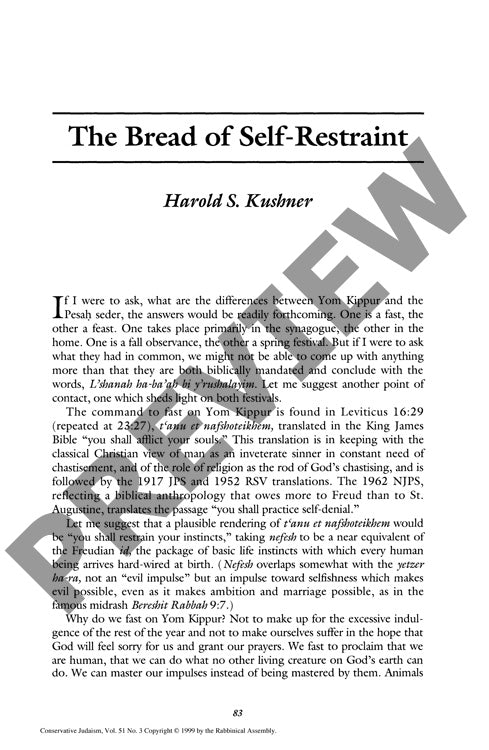The Bread of Self Restraint
Couldn't load pickup availability
Ancient Jewish festivals encode profound psychological insights about human nature through their ritual foods and practices. By reexamining key Hebrew phrases from Yom Kippur and Passover liturgy, traditional interpretations of sacred fasting and unleavened bread reveal a deeper focus on self-restraint rather than suffering. Through philological analysis and comparative religious methodology, conventional translations of "t'anu et nafshoteikhem" (Leviticus 16:29) and "ha lahma anya" (Passover Haggadah) warrant significant revision. Drawing on Freudian concepts of the id and Jewish midrashic literature concerning the yetzer hara, "t'anu et nafshoteikhem" emerges not as "afflict your souls" but as "restrain your instincts," recasting the Yom Kippur fast as an assertion of human agency over biological drives. Similarly, "ha lahma anya" translates more accurately to "bread of self-restraint," transforming matzah from a symbol of hardship into an emblem of disciplined freedom. Both festivals ultimately celebrate humanity's unique capacity for self-control, distinguishing humans from animals through conscious restraint of natural impulses, particularly regarding food and sexuality.

More Information
-
Physical Description
-
Publication Information
Published 1999
ISBN
-
Publication Credits
Harold Kushner

